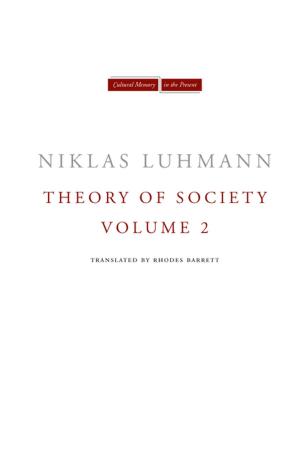| Author: | Elizabeth Karlsgodt | ISBN: | 9780804777827 |
| Publisher: | Stanford University Press | Publication: | April 7, 2011 |
| Imprint: | Stanford University Press | Language: | English |
| Author: | Elizabeth Karlsgodt |
| ISBN: | 9780804777827 |
| Publisher: | Stanford University Press |
| Publication: | April 7, 2011 |
| Imprint: | Stanford University Press |
| Language: | English |
Defending National Treasures explores the fate of art and cultural heritage during the Nazi occupation of France. The French cultural patrimony was a crucial locus of power struggles between German and French leaders and among influential figures in each country. Karlsgodt examines the preservation policy that the Vichy regime enacted in an assertion of sovereignty over French art museums, historic monuments, and archeological sites. The limits to this sovereignty are apparent from German appropriations of public statues, Jewish-owned art collections, and key "Germanic" works of art from French museums. A final chapter traces the lasting impact of the French wartime reforms on preservation policy. In Defending National Treasures, Karlsgodt introduces the concept of patrimania to reveal examples of opportunism in art preservation. During the war, French officials sought to acquire coveted artwork from Jewish collections for the Louvre and other museums; in the early postwar years, they established a complicated guardianship over unclaimed art recovered from Germany. A cautionary tale for our own times, Defending National Treasures examines the ethical dimensions of museum acquisitions in the ongoing noble quest to preserve great works of art.
Defending National Treasures explores the fate of art and cultural heritage during the Nazi occupation of France. The French cultural patrimony was a crucial locus of power struggles between German and French leaders and among influential figures in each country. Karlsgodt examines the preservation policy that the Vichy regime enacted in an assertion of sovereignty over French art museums, historic monuments, and archeological sites. The limits to this sovereignty are apparent from German appropriations of public statues, Jewish-owned art collections, and key "Germanic" works of art from French museums. A final chapter traces the lasting impact of the French wartime reforms on preservation policy. In Defending National Treasures, Karlsgodt introduces the concept of patrimania to reveal examples of opportunism in art preservation. During the war, French officials sought to acquire coveted artwork from Jewish collections for the Louvre and other museums; in the early postwar years, they established a complicated guardianship over unclaimed art recovered from Germany. A cautionary tale for our own times, Defending National Treasures examines the ethical dimensions of museum acquisitions in the ongoing noble quest to preserve great works of art.















